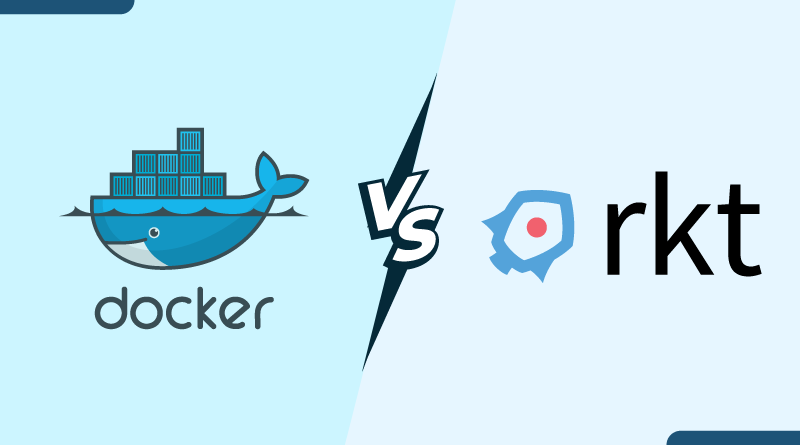Developers package apps into containers for hassle-free software or apps (websites) deployment across different platforms. Therefore, the foremost tool that makes this containerization process simple is Docker. Docker Inc has developed this tool in 2013. It is written in Go Language. The main benefit of this tool is that Docker functions with every management tool and engines like Google GKE, AWS ECS, and Azure ACI.
However, some developers are not completely dependent on Docker. Hence, they leverage RKT, (Rocket) which is a CLI (Command-Line Interface). The CLI is a text-based UI that allows running programs. It was founded back in 2014 when Docker users experienced some security issues. Thus, it was designed to keep the interface more secured.
We know that you might have begun the debate of Docker vs RKT. Let us discuss the differences between this in the below article.
What Is Meant By Docker?
Developers required a standardized application to migrate apps in a containerized form. Thus, Docker is helpful for them.
Open source containers are standardized, executable components that combine application source code with the libraries and dependencies required to run that code in any operating system (OS). Docker is an open source platform that helps developers build, deploy, run, update, and manage containers.
Containers simplify the development and delivery of distributed applications. Since organizations have shifted to cloud-native development and hybrid multi cloud environments, they have become increasingly popular. The capabilities built into Linux and other operating systems can be used to create containers without Docker. However, Docker makes containerization faster, easier, and safer. As of this writing, Docker reports over 13 million developers using the platform.
Related: Docker Container: What is it and what are its advantages?
Know All About RKT
In contrast to Docker, RKT is a lightweight, secure container system developed by CoreOS. An open container standard known as “App Container” or “appc” is the basis for its development. As a result, rkt images can be used in a number of container systems, including Kurma, JetPack, etc., that follow the “appc” open format.
Why do we use Docker?
Docker speed up the application deployment process. By providing a standardized working environment to developers, it efficiently organizes the entire development lifecycle. Every Docker app runs inside a container, so there is no need to boot into an operating system – Docker does all that for you.
Using Docker containers allows the application to be deployed faster since they have minimal runtime requirements. There is no need to set up a new environment – you just need to download the Docker image and run it on different systems. We also want to mention that these images are quite small in size, which makes it easier to deploy applications quickly. Continuous Integration and Continuous Delivery (CI/CD) workflows are best accomplished with Docker.
Check out MilesWeb’s Managed Cloud Server for Maximum-Performance!
Should You Use RKT?
The answer to this question is not absolute, just as it is with any other software system. You don’t have any reason to switch if you have already invested well in Docker and locked it down tightly. However, if you are planning on moving away from traditional dedicated servers to a virtualized system, RKT might be worth considering.
It is important to realize that site reliability depends on how well you can predict fault points in production systems and design redundancies to counter them.
When designing such a system, knowing the pros and cons of advanced technologies can be helpful.
Related: Docker Vs Virtual Machine: Differences You Should Know
Conclusion: Docker vs RKT, Which Is Better?
After reading both tools’ usages, you might have understood the clear difference between both software. RKT has a small number of coding lines with a universal framework and promises more performance as compared to Docker.
That is why modern-age developers are preferring more RKT software. On the other hand, Docker is an open-source platform with less performance value in comparison to RKT. However, you cannot ignore Docker because it has a versatile community support with a GUI (Graphical User Interface) to manage containerized apps. Thus, on the basis of your requirements you need to choose the right software.







